Is It Harder To Become A Firefighter Or Police Officer – Expert advice for big guys
I was recently chatting with other firefighters around the kitchen table, we were throwing jabs at each other as usual about all kinds of stuff. I specifically get made fun of all the time because I used to be a sheriff’s deputy. So even though I am no longer in law enforcement, I get made fun of for being a cop in the first place, from time to time, I take jabs back about how close they are to becoming cops already. After our lunch time jokes, and we each went off to kind of do our own thing, I started thinking. Is it harder to become a firefighter or police officer?
It is slightly easier to become a police officer than a firefighter, but not as easy as many think. Although law enforcement is facing shortages due to the hostility towards police officers in recent years, they are not going to become desperate and just hire anyone. More than ever, police candidates are often expected to have near impeccable background, because nobody wants another George Floyd incident happening from one of their officers. This has also made things that much more competitive in the fire service. People who do not want to face hostility at the level police officers do, but still want to work in public safety, as well as those who grew up with family in the fire service. I am going to go a bit deeper in each hiring process, since I have had the benefit of being in both hiring processes.
Application Process
Both fire department and police departments have about 9 steps in their application process. Some agencies will have these in a different order on how they are conducted, while some agencies have less steps, while others may possibly have more. Let’s explore each of these further.
Written Test
The written test tends to be the first step in the majority of hiring processes. Both the fire service and law enforcement can vary department by department, or they may use something more standardized. For example, a more standardized written test for the fire service, may be a service such as those offered by FireTeams. And with law enforcement, they may use something like POST or NPOST. What I’ve noticed with both of these exams, is that things like reasoning, arithmetic, geography are all fair game to be tested. I personally hate math, and always have, if this is something you struggle with, you should really study up.
I’ve had written tests where all that was required was a spelling test, while others gave you a questionnaire with about 50 questions that had to be completed in about 10 minutes. No this is not a joke or exaggeration, I believe this test is designed to see how well you work under pressure, and how accurate you can be. It is designed in a way that people should not be able to complete most of the questions, but then again, that was my experience with those types of tests.
Physical Abilities Test (PAT)
As I mentioned at the beginning of this section, these steps may be ordered differently from agency to agency. Some places test this towards the end of the process, but for the majority, it tends to be near the beginning of it. This is designed to both weed out candidates (Every step is designed to also weed candidates out), and to test your current fitness level. This should not be confused with the medical assessment, which tends to be more of an occupational fitness test. Some PATs simply involve push ups, sit ups and 1.5 mile run, while others are more occupation specific such as the fire service’s CPAT. If you are out of shape, you need to get into shape asap.
Panel Interview
The next step in the interview process is usually the panel interview. These interviews are not your usual one on one interviews or even panel interviews. Many times they will all be well dressed, and look intimidating. You must remember that some agencies do play into the psychological aspect of this, and some do not. The ones that don’t will tell you to relax, and assure you that they are not there to make you nervous or trip you up. Everyplace is different, and you should be prepared to encounter any of these. While many departments will not ask you the same exact questions compared to the next, there are some things you should be aware of that they will ask. This goes for both Fire departments and police departments.
You will be asked about items in your background, items that they discovered in your background, that you did not mention (NOT GOOD), what you know about their department. You will also be asked a lot of scenario based questions about actions you will do on the job. If you do not know how to do something, or just simply do not know how to do it, say that. Do not try to just wing it, or make up an answer. To you it may feel like your made up answer in the original, but to the interviewers, who have interviewed hundreds and hundreds of applicants all looking to get the same job, it tends to be difficult to come up with an authentic made up answer, rather than the truth. Make sure you come prepared, and be honest in each and every question they ask you.

Background Investigation
The background investigation is usually somewhere in the middle of the process or towards the very beginning of it. This step also tends to be the roadblock for many applicants. Background investigations for both law enforcement and the fire service can be pretty invasive. Some things you are typically asked to disclose are things like your prior work history, references, credit report, prior addresses, schools you’ve attended, criminal history and more. Some things background investigators tend to dig up are people and other things either not asked or expected. Such as your former coworkers, neighbors, teachers/professors, this even includes exes.
Polygraph
Depending on the agency, some places will have a polygraph, and some don’t. The purpose of the polygraph is to find out if there were any discrepancies or if you flat out lied at any point during the hiring process. This step just like the background investigation tends to be a huge roadblock for a lot of people as well. The way these polygraphs typically go is that they will first ask you to deliberately lie on a question they ask you. This is done in order for them to see how your body reacts when you lie. Keep in mind you will be attached with sensors on your skin to detect sweat, a band around your waist to detect increased breathing, a sensor on the seat you sit on to detect fidgeting as well. The best way to prepare for this is to simply be honest from the start. Be aware that lying is nearly on the same level as flat out murder in both the fire service and law enforcement. DO NOT EVER LIE.
Psychological Evaluation
The psych evaluation is typically done towards the end of the hiring process. Although this is common in both fire and law enforcement, this is more typically seen in the law enforcement world. The simple fact that police officers must carry guns and be prepared to use deadly force if they come to a situation that justifies deadly force, they have to be sure they are of sound mind before they are even hired. Typically you would have an appointment set up with a psychologist and answer around 500 true or false questions.
The very long questionnaire is designed for the program to get a good snapshot of the type of personality you are. Once you finish the test, you then have a brief interview with the psychologist to go over your answers, or on things the program may have flagged you on. If you are deemed fit, then you move on to the next step. Be sure to dress business professionally to this evaluation. Many people make the mistake of assuming just because they do not work for that fire department, or police department, that they do not have a profound effect on your employment. Treat them like you would a superior at your department.
Chief’s Interview
The chief’s interview is usually towards the very end of the hiring process. Typically this step is where the chief has the opportunity to learn about you and see if you are indeed a good fit for the personnel at their department. You cannot pretend to be someone you are not. You don’t know the personality type they’re looking for, and if you pretend to be someone that department would not hire, and the real you are the type of people they’re looking for, you can lose that opportunity. Prepare for this interview just like you did for any of the previous interviews, and if you have made it to this step in your process, congrats!
Police & Fire Commission
The Police and Fire commission are the ones who have the final say in hiring. Chiefs recommend to hire or fire a candidate/employee and it has to go through the commission. The commission is usually composed of civilians, some of them retirees and some community leaders. They typically are the same group of people that approve or disapprove hiring and firings in your local jurisdiction. Their interviews are a little more generic and not as specific as a department interview would be like, but they want to make sure that your values are in line with those of the community. After this, all you have left to do if not already done is the medical assessment.
Medical Assessment
The medical is really just a medical check up, to make sure you don’t have any medical deficiencies that would prevent you from being able to properly do your job. When you take your medical assessment you will be given lift tests, to detect muscular imbalances, and if you can physically lift some common weights that you will be lifting on the job. Here they will also be giving you immunizations if you have not had them done yet, blood tests such as testing for tuberculosis, hepatitis and other blood borne diseases, because both in law enforcement, and in the fire service, you will be dealing with blood once in a while. Once complete, these results are usually sent to the agency that requested them.
CPAT vs PAT
These two tests are the standardized physical assessment tests given by both police and fire, if they choose not to have their own personal PT test. Both these tests are very specific to the nature of the job. In the CPAT, you are expected to move through 8 stations with simulated weight. The following are the 8 events of the CPAT
- Stair Climb (60 steps per minute)
- Hose Drag
- Equipment Carry
- Ladder Raise & Extension
- Forcible Entry
- Search
- Rescue
- Ceiling Breach & Pull
When the event begins, you will be wearing a 50lbs vest that will remain on you for the duration of the test.
For the law enforcement side of things, I’ve experienced the typical pushups, situps and 1 ½ mile run. Some agencies run them a little differently. I’ve been to somewhere where you go through an obstacle course followed by a half mile simulated K9 track, where you must wear a 10lbs vest and run with a wax rifle during the run. I had yet another where I started from the inside of a squad car, had to sprint to do some obstacles, during the obstacles there would be pictures of some suspects, and at the end, I would be asked the details of a specific suspect. In most of these PATs, you are tested for a lot of maximal and explosive strength. Such as one rep bench press max, 300 meter sprint, and vertical jump. For firefighters, you are tested on muscular endurance and some strength.
Fire Academy
You will find that both the fire academy and the police academy have many similarities, and a few differences. I wrote a post about whether or not the fire academy is harder than bootcamp. There are a few ways that the fire academy can be offered. They can be offered at a regional technical college, and they can be fully run by large departments. When going through the academy, some common things you will train and learn are SCBA confidence, search and rescue, forcible entry, water supply, ladders and more. Regional academies tend to be more general when they are teaching, since they teach students/candidates who may be going to multiple departments. Department specific academies tend to cover these fire based techniques and concepts, and they are much more specific to the department’s needs. Furthermore, department fire academies also have their EMS courses built into the academy. Regional academies are not like this, and a student/candidate would have to take a separate class for this.

Police Academy
As mentioned before, there are many similarities between fire academies and police academies. The police academy can also be offered at a regional academy such as a technical college, or offered by a department’s in-house academy. As opposed to the fire academy where you are taught specific ways to fight fire, ventilate structures and survival skills. In the police academy, you are taught through a lot of scenario based teachings. When I went through the police academy, every scenario was so many ways a scenario could turn deadly, that it successfully ingrained officer safety into me. Even now as a firefighter, there are still aspects of this training I just do out of habit. You will learn a lot of case law, traffic stops, searches, use of force, domestic violence scenarios and more.
Physical Demands
The physical demands of both occupations share some similarities, but the ultimate fitness goals are a little different. As a firefighter, the number one important thing in my opinion is endurance. As a big guy, I hate running, but I realize that training my cardiovascular system is important for multiple reasons.
- Helps you conserve air in your SCBA
- Prevents heart disease
After having a strong cardio foundation, muscular endurance is very important as well. You need to be strengthening your trunk and core muscles, because activities such as carrying a roof ladder on your shoulder going up another ladder, or even just advancing a charged hose line, take A LOT of core strength.
As a police officer, endurance is very important, because if you end up in a foot chase, or even a fight you have to be able to function effectively. Getting gassed while trying to arrest someone can go from a resisting arrest scuffle, to you fighting for your life, because you do not have the energy to stop the suspect from disarming you. You also need to have explosive strength. This explosive strength comes in handy when you need to quickly subdue a suspect, run for cover, and to end physical altercations quickly.
One last thing I want to mention is about your physical appearance. I know in law enforcement, if you look like an out of shape slob, you do not have as much command presence as someone who does not. What does this mean exactly? If you are with a suspect, and he is thinking of fighting you in order to escape, if he thinks based on your appearance that you do not take care of yourself, and that you will be easy to disarm or run away from, they will do that.
Same goes for the fire service, if you look like you are already pretty unhealthy going in, it’s going to be hard to convince an agency to bring you on with them, because your career can be cut pretty short for not taking care of yourself coming into an occupation that will already take a huge toll on your body.
Conclusion
I believe it is both difficult becoming a police officer and a firefighter in their own ways. Yes the law enforcement community may have taken a hit in applicants, as of the writing of this post, but it is still competitive, and it makes departments that much more careful on who they decide to hire. You must know where you want to go, what they require, and your quickest path to get there is. I have a free downloadable PDF that explains the 4 simple steps to get hired by your dream department. Make sure you grab yourself a copy of it below.
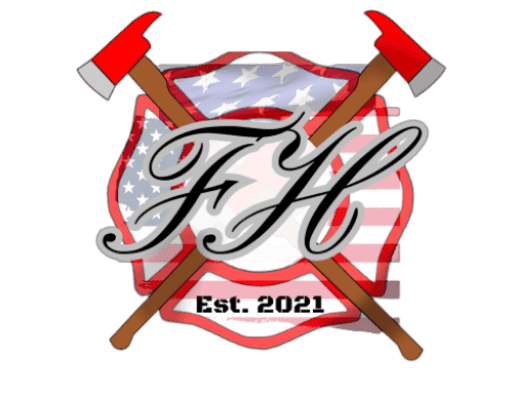
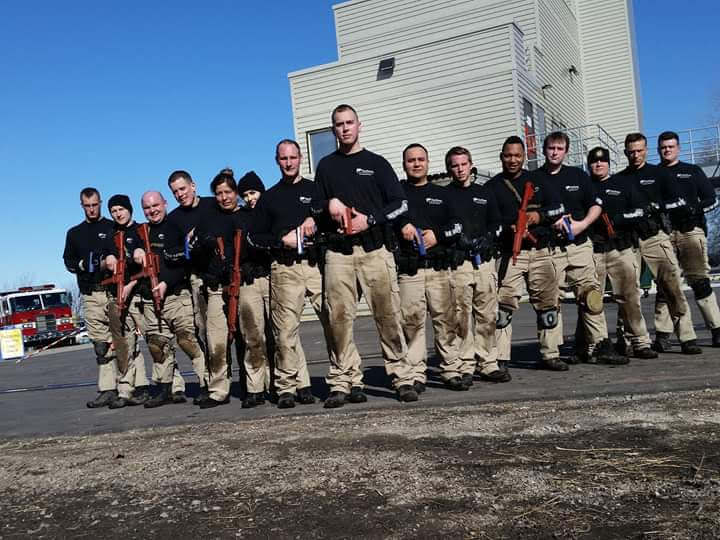
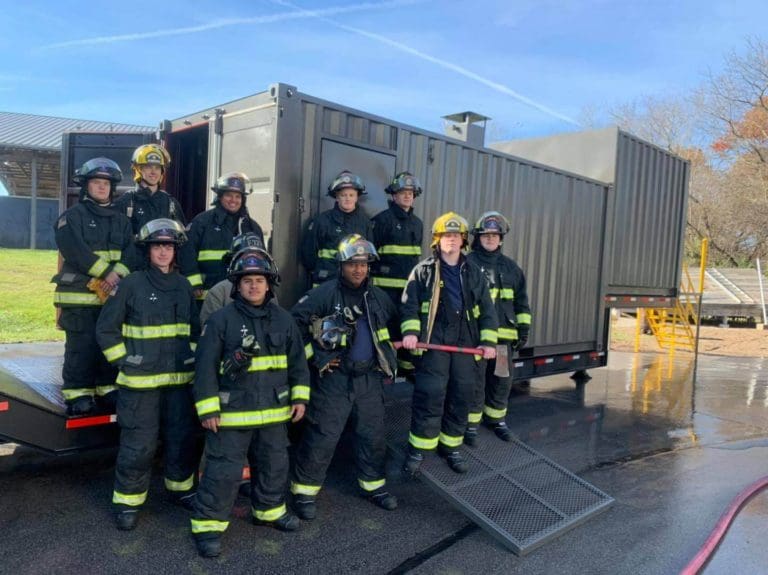
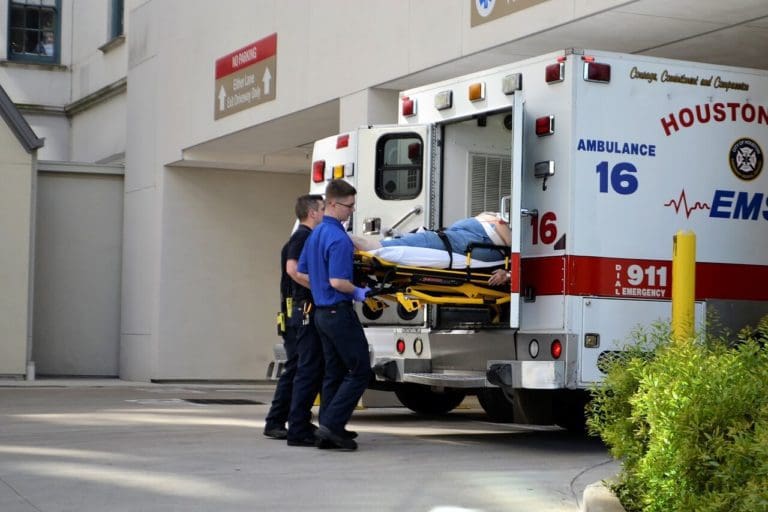
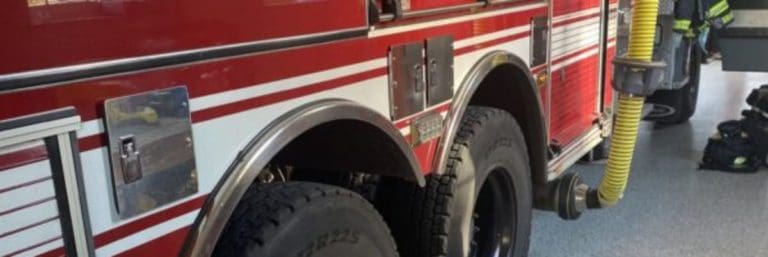
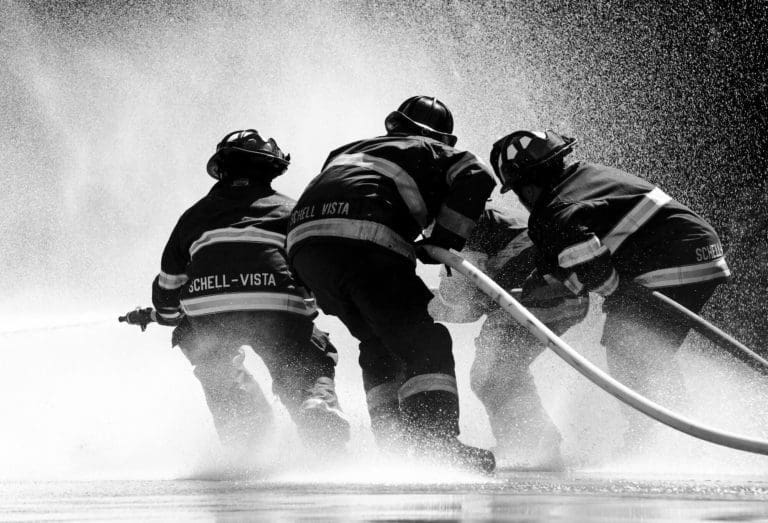
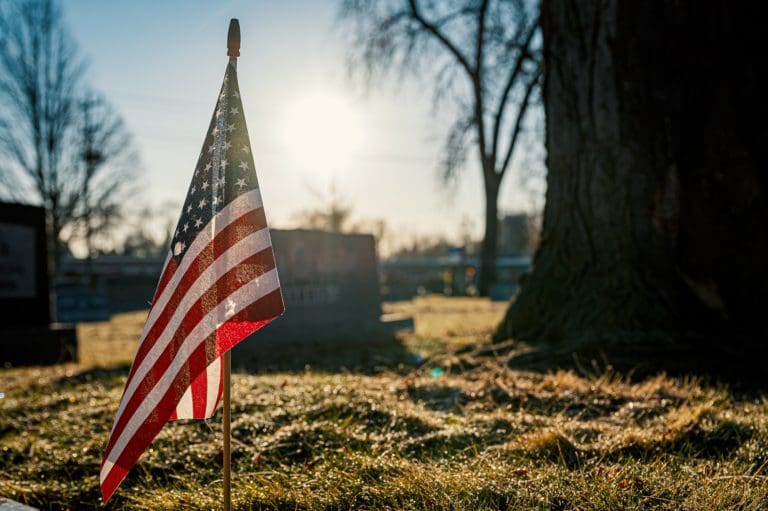
One Comment